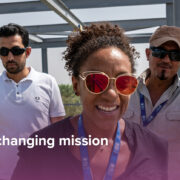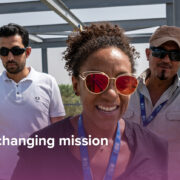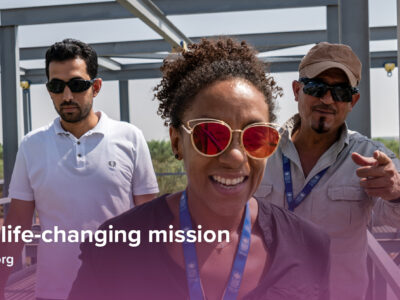The United Nations Entity for Gender Equality and Women’s Empowerment (UN Women), Ethiopia Country Office (ECO) is working towards ensuring a gender responsive financing system within the public finance management system in Ethiopia. It ensures that new and existing internationally and nationally agreed commitments on GEWE are effectively financed in Ethiopia by enabling the government to establish Gender Responsive National Planning and Budgeting system.
Gender Responsive Budgeting (GRB) aims at mainstreaming gender into public budgets, looking into how financial resources are collected and allocated with respect to women and men. GRB is used to shape policies, set priorities and provide the means to meet the social and economic needs of all citizens. It helps governments understand potential adjustments in resources needed to achieve their priorities and commitments to achieve gender equality and advance women’s rights as stipulated in international conventions, commitments and goals, including the Convention on the Elimination of All Forms of Discrimination against Women (CEDAW), the Beijing platform for action and the Sustainable Development Goals (SDGs). Beyond ensuring accountability to women’s rights, GRB is also a step towards improved public transparency and economic efficiency.
Increasing financing for gender equality recognizes that planning, resource allocation and prioritization of development initiatives have to be disaggregated, by sex, among other parameters, to understand where the greatest needs are, to direct resources to those areas, and to monitor how resources and planning bridge gender gaps and contribute to the empowerment of women.
Ministry of Finance (MoF) leads nationally in promoting GRB and has mandated its Gender Directorate to engage relevant directorates within the Ministry, demonstrating political will and direction. While progress has been made in integrating gender in the revised financial administration proclamation and budget call and building the capacity of experts and officials using the GRB guidelines, an accountability mechanism to ensure that gender is integrated in sectoral planning and budgeting processes is not yet in place. This limits the government’s ability to realize its commitment to uphold the rights of Ethiopian women, including through the financing of national programmes.
UN Women, in partnership with the Ministry of Finance (MoF) and with support from the governments of Sweden, Norway, and the Netherlands, implemented a four-year “Transformative Financing for Gender Equality and Women’s Empowerment’’ programme (July 2017-June 2021) in Ethiopia with an estimated budget of USD 2.99 million (actual budget allocation of USD 2,848,233) for the entire programme period. The programme Transformative Financing for Gender Equality was initiated with the aim of contributing to the overall goal of adequate and effective financing of new and existing national and international commitments on Gender Equality and Women Empowerment. The following are four expected outcomes of the program contributing to the achievement of the overall goal:
- Creating political consensus by the Government of Ethiopia on the need to systematically address Gender Responsive Budgeting (GRB),
- Supporting the reform of fiscal laws, policies, and national action plans to prioritize budgetary allocations in favour of gender equality and women’s empowerment (GEWE),
- Ensuring equitable distribution of international financing to address gender inequalities and the empowerment of women, and for increased resources for GEWE, and
- Strengthening oversight mechanisms for allocations for GEWE, and ensuring the inclusion of parliamentarians, civil society, and women’s organizations in GRB.
The programme document has been implemented at the federal level and regional including Amhara, Oromia, SNNPR and Tigray in partnership with Ministry of Finance (MoF), Ministry of Women and Social Affair (MoWSA), Ministry of Agriculture (MoA), Federal Job creation and Food Security Agency (FUJCFSA) and their regional counterparts. To build the capacity of gender advocated, UN Women partnered with Budget, Women and Children Standing Committees of the House of People Representatives (HoPR) and women’s associations. UN Women also worked with CSOs such as Union of Ethiopian Women and Children Association (UEWCA) to strengthen the capacities of women’s associations in Amhara, Tigray and the Dire Dewa City Administration. Other key stakeholders of the Programme were the Office of the Federal Auditor General (OFAG).
The focus of the programme is enhancing the capacity of experts on Gender Responsive Budgeting to enable them to consider gender during planning and budgeting through training and South-South experience sharing. The program also generated a pool of knowledge products and data as one of the strategies to create discussion and influence intervention and also as sustainable mechanism for institutions to consider gender responsive budgeting when implementing their programs. In addition, in collaboration with international organizations such as International Monitory Fund (IMF) high level dialogue was organized on key findings of the gender inequality impacts to Ethiopia’s economic growth.
The programme was initiated to contribute to the overall goal of adequate and effective financing of new and existing national and international commitments on gender equality and women’s empowerment. The focus is on enhancing the capacity of experts on Gender Responsive Budgeting to enable them to consider gender during planning and budgeting through training and South-South experience sharing. The Programme is in line with UN Women’s Global Strategic Plan 2018-2021, particularly Outcome 2: women lead, participate in, and benefit equally from governance systems, contributing to SDGs Goal no, 1,2,3,5,10,16 and 17. At the national level, the design is aligned with UNDAF 2016-2020, i.e., pillar 4 on good governance, participation, and capacity development and pillar 5 equality and empowerment, Ethiopia’s Growth and Transformation Plan II (2016-2020), i.e., strategic pillar 7 on the promotion of gender and youth empowerment and equity; and the country strategy of UN Women Ethiopia.
Following the end of the programme, the document was independently evaluated by consultants and the report finalized and submitted end of October 2021 providing recommendations and way forward. The evaluation provided an in-depth assessment of the programme results against its four outcomes and the programme performance in terms of relevance, effectiveness, efficiency, sustainability, impact, inclusiveness, participation, equality, non-discrimination, and social transformation. The programme end evaluation covered the entire implementation period from July 2017 – June 2021 under its four outcomes.
As a result, the evaluation report shows that the programme has made some good progress in GRB, however, a lot still needs to be done to fully integrate GRB in all federal and regional budgetary processes and sectors. Therefore, based on the recommendations from the evaluation, instead of formulating a new programme, UN Women is considering developing a second phase of the current Programme by taking good practices, lessons learned, and recommendations provided in the evaluation as well as taking into consideration GRB experts advise and comments.
Accordingly, UN Women is planning to recruit an international consultant with extensive knowledge of Financing for Gender Equality/ Gender Responsive Budgeting (GRB) to develop the phase II programme document, Transformative Financing for Gender Equality and Empowerment of Women 2022- 2025










Comments